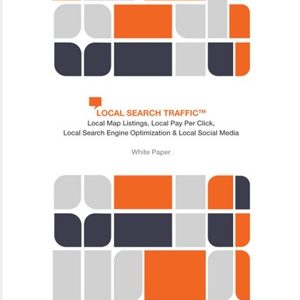
By now, you’ve probably heard about the subtle Google algorithm update that made waves in the online world at the end of July. Although Google deemed this tweak minor and didn’t assign it a formal name, the clever folks at Search Engine Land have affectionately dubbed it "Pigeon."
Despite seeming small and insignificant, the impact of Pigeon has been substantial, especially for businesses that depend on local search dominance. This includes hairdressers, small restaurants, realtors, dentists, and similar enterprises. These businesses now face increased challenges in managing their local reputation due to Pigeon.
Thankfully, there are some effective strategies to recover from this update. But first, let’s break down what this update entails and why it might be more potent than it appears.
Addressing the Yelp Issue
Before Pigeon, Google had issues with Yelp appearing lower in search results, often favoring sites Google had a hand in. Research by TechCrunch showed that even searches including the word "Yelp" would show Google’s own properties at the top, which complicated their claims of being "open," "transparent," and "fair."
The tweak aimed to eliminate perceived biases in local search results. While Google’s formal statements on algorithm changes are scarce, experts deduced this from observable changes. Previously, local searches weren’t interconnected with global signals, making it relatively easier to dominate local search results.
For example, if I ran a bakery in a small town, optimizing my website with relevant keywords and city name could almost guarantee a top search position. This was because the local competition was minimal. A smart keyword strategy helped counter negative reviews effectively.
However, post-Pigeon, small businesses must now compete with globally recognized sites like Yelp, TripAdvisor, and Urban Spoon. These massive platforms inherently receive more traffic and are now ranking high in local searches, making it imperative for small businesses to manage their online reviews proactively.
Actionable Steps to Recover
Instead of admitting defeat, the following steps can help businesses regain local search prominence and manage their reputation effectively.
1. Claim Your Online Presence
Despite frustrations, maintaining a presence on Google My Business is crucial. This ensures your business appears on Maps, Google+, and potentially gains favor in Google searches. Registering on other listing sites, such as Bing Places, Merchant Circle, Yellow Pages, Manta, and Citysearch, further improves visibility.
2. Emphasize Local Credentials
To achieve higher local search rankings, make it evident that your business is local. Display your address prominently on your homepage, footer, Facebook page, LinkedIn, and everywhere else relevant. This assists Google’s algorithms in identifying your local roots.
Similarly, prioritize your local phone number over a toll-free option to signal your local presence to Google effectively.
3. Correct Inconsistencies
Consistency in business information (name, address, phone number) across platforms is vital. Errors can confuse both potential customers and Google’s algorithm. Ensure that all listings reflect accurate, up-to-date information.
4. Foster Positive Local Feedback
Encouraging feedback, especially positive reviews on platforms like Yelp, is essential. Implement customer surveys to gauge satisfaction and direct happy customers to review sites. This can help mitigate negative reviews and boost positive visibility.
5. Monitor and Respond to Feedback
Regularly monitor reviews and address negative comments with well-crafted, sincere apologies. A detailed, non-confrontational response can often mitigate damage. This proactive approach is essential, given the prominence of review sites in search results.
6. Generate Local Buzz
Engage in community activities or sponsor local events to generate media coverage and online chatter. Such actions foster goodwill and can lead to increased clicks and improved search rankings.
7. Continuously Test and Adapt
Track your website’s search rankings and test the impact of changes. Regularly adjust strategies based on performance data, ensuring that improvements are continually made.
8. Maintain High-Quality Content
Google’s Panda update remains relevant, emphasizing the need for high-quality content. Ensure your website offers valuable, well-crafted content to maintain and improve search rankings.
Implementing these steps can help you overcome the challenges posed by algorithm updates like Pigeon. If you have any additional tips or experiences, feel free to share them in the comments section.
All images and screenshots were obtained in September 2014.



